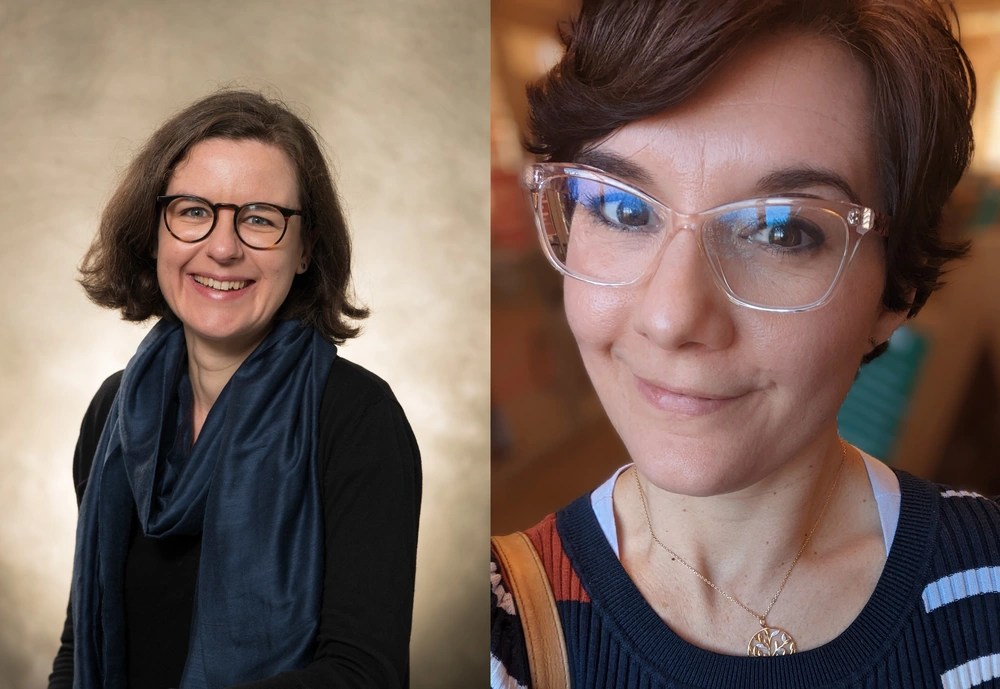
Two faculty members in the Department of French & Italian will spend part of the spring semester revising one of their courses with inclusivity in mind, with the help of a highly competitive award.
Professors Julie Gaillard and Aurore Mroz have both been selected for the LAS-OVCDEI Inclusive Pedagogy Certificate Program for Spring 2023.
This award provides 16 selected faculty participants with a one-course release in Spring 2023 to help with the design or revision of syllabi or course materials to be taught for the academic year of 2023-2024. The 14-week program engages faculty in hybrid experiential learning and teaches instructors practical tools for designing courses geared towards diverse populations of undergraduate and graduate students.
Some of the topics covered in the program include:
- understanding the role of bias, identifying microaggressions, and employing micro-interventions in the classroom
- fostering accessibility and managing power dynamics and conflict in the classroom for women faculty, LGBTQI faculty, international faculty, and faculty of color
- and constructing inclusive syllabi, assignments, and classroom policies.
A description of Gaillard’s and Mroz’s projects in their own words follows.
Julie Gaillard: Media and cinema in French
During the training, I will extensively revise a course originally titled “FR 324: Literature and the other arts: Reality of images, images of reality,” which explored how photographic images impact the ways in which humans perceive and depict "reality" as societies shift from analog to digital modes of production of images and text.
Originally, this course focused on abstract historical and technical discussions of mediality. My goal is to rebrand the course under the category “FR 389: Media and cinema in French” and refocus its contents around the politics of visibility to include topics such as white gaze, male/female gaze, or the impact of bodily norms conveyed through social media.
I also intend to work on the accessibility of materials and the inclusiveness of the assignments. Most importantly, the inclusive pedagogy training will allow me to develop my pedagogical skillset as I strive to better serve all the students in my classes.
Aurore Mroz: Worldwide spoken French
The project for my Inclusive Pedagogy Certificate relates to FR 213: French phonetics, now intended to become FR 313: Worldwide spoken French. It is described as an “advanced undergraduate seminar focusing on the speaking and understanding of French as a culturally and linguistically diverse language spoken around the world.” This course will be a requirement for both majors and minors and will also attract a substantial number of non-degree-seeking students. It will be offered at least once yearly.
As I started redesigning this course, several issues related to inclusive pedagogy arose.
First, as a French citizen, my expertise and practice has been predominantly based in the language used in Metropolitan France — a view carrying a sense of colonialism lacking in the inclusion of other types of usage of the language spoken on all five continents.
Second, as the population of students I serve is becoming more and more diverse in terms of language background and learning differences, I need to ensure that their background is valued and used productively in order to stay away from scapegoating of accents notably.
Finally, as I concentrate in Second Language Acquisition and Teacher Education, my job is also to train TAs to become in turn inclusive pedagogues, and I intent to transfer what I will have learned into the training teaching graduate students receive in French & Italian specifically, as well as in SLCL more generally.
Dania De La Hoya Rojas